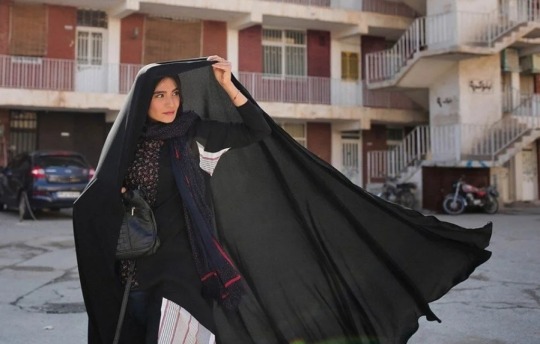#Sarina Farhadi
Photo
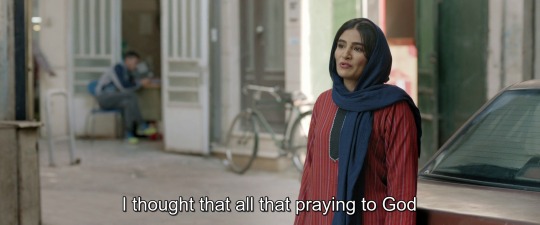

قهرمان [A Hero] (Asghar Farhadi, 2021)
#قهرمان#A Hero#Asghar Farhadi#Iran#artist#prison#jail#Cinema of Persia#Cinema of Iran#Iranian filmakers#Tehran#Mohsen Tanabandeh#Amir Jadidi#Sahar Goldoost#scandal#Fereshteh Sadr Orafaie#Sarina Farhadi#pride#charity#debt#Iranian film directors#Iranian New Wave#Middle East#money#capital punishment#selfless act#celebrity#Ghahreman#god#Shiraz
9 notes
·
View notes
Text
Anonymous asked: hi!!! i was hoping you could provide a list of some actresses that have resources with them veiling? i'd prefer a good mix of cultures & ethnicities not just hijabis. also open to all ages! thank you!!!
(I somehow deleted the ask but I luckily sent it to a friend asking for suggestions! I sadly couldn't find many cultures with notable actresses/roles but I hope this helps.)
Afsaneh Bayegan (1961) Iranian.
Mahtab Keramati (1970) Iranian.
Leila Hatami (1972) Iranian.
Vishka Asayesh (1972) Iranian.
Hanan Tork (1974) Egyptian.
Elma Theana (1974) Indonesian.
Sarah Vi (1976) Indonesian.
Mahnaz Afshar (1977) Iranian.
Mercy Aigbe / Hajiya Meena (1978) Nigerian.
Sareh Bayat (1979) Iranian.
Niusha Zeighami (1980) Iranian.
Tannaz Tabatabaei (1983) Iranian.
Negar Javaherian (1983) Iranian.
Elnaz Shakerdoost (1984) Iranian.
Baran Kosari (1985) Iranian.
Yuna (1986) Malay and Bugis.
Heliza Helmi (1986) Malaysian.
Leah Vernon (1988) African-American.
Neelofa (1989) Malaysian.
Dina Torkia (1989) Egyptian / English.
Bella Dally (1991) Malaysian.
Wawa Zainal (1991) Bruneian, Bajau Malaysian, and Tausug Filipino.
Mariah Idrissi (1992) Pakistani and Moroccan.
Maria Alia (1993) Palestinian / Puerto Rican.
Mira Filzah (1993) Malaysian.
Elfira Loy (1994) Malaysian.
Leena Asad / With Love Leena (1994) Palestinian.
Habiba da Silva (1994) Lebanese, Syrian / Brazilian (Unspecified North African, Unspecified West African, Unspecified Indigenous, Italian, Spanish, Portuguese).
Jasmine Fares (1995)
Shahd Batal (1996) Sudanese.
Hajar Brown (1996) Moroccan.
Sabina Hannan (1996) Bangladeshi.
Halima Aden (1997) Somali.
Sonita Alizadeh (1997) Afghan.
Halima (1997) Somali.
Sarina Farhadi (1998) Iranian.
Touka El-Fawwal (1998) Egyptian.
Imen Siar (1999) Moroccan, Italian and British.
Laura Melodie Lutiq (?)
Roles only:
Öykü Karayel (Ethos) Turkish.
Yasmine Al Massri (Quantico) Palestinian / Egyptian.
Gizem Erdogan (Caliphate) Turkish.
Gülsim Ali (Payitaht Abdülhamid) Turkish.
Anjana Vasan (We Are Lady Parts) Tamil.
Juliette Motamed (We Are Lady Parts) Iranian.
Sarah Kameela Impey (We Are Lady Parts) Afro Guyanese / British.
Lucie Shorthouse (We Are Lady Parts) Kenyan.
Faith Omole (We Are Lady Parts) Black British.
Shraddha Kapoor (Haseena Parkar) Punjabi / Marathi and Konkani.
Medalion Rahimi (NCIS: LA) Iranian, Mizrahi Jewish.
Sunita Mani (Mr. Robot) Indian.
Nikohl Boosheri (The Bold Type) Iranian.
Mina El Hammani (Elite) Morrocan.
Assa Sylla (Skam France) Black French.
Iman Meskini (Skam) Tunisian / Norwegian.
Nicole Chamoun (Safe Harbour) Lebanese.
Amanda Stephen (Orange Is the New Black) Black Canadian.
Sinem Öztürk (Huzur Sokagi) Turkish.
Burçin Abdullah (Selam) Turkish.
Helana Sawires (Ali's Wedding) Egyptian.
Esra Bilgiç (Dirilis: Ertugrul) Turkish.
Özge Yagiz (Yemin) Turkish.
Nazanin Boniadi (Homeland) Iranian.
Alia Bhatt (Gully Boy) Kashmiri and German.
10 notes
·
View notes
Text
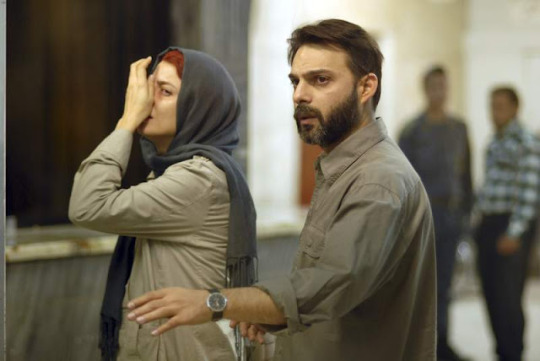
Leila Hatami and Peyman Moaadi in A Separation (Asghar Farhadi, 2011)
Cast: Peyman Moaadi, Leila Hatami, Sareh Bayat, Shahab Hosseini, Sarina Farhadi, Ali-Asghar Shahbadi, Shirin Yazdanbakhsh. Screenplay: Asghar Farhadi. Cinematography: Mahmoud Kalari. Production design: Keyvan Moghaddam. Film editing: Hayedeh Safiyari. Music: Sattar Oraki.
The original title in Persian of A Separation translates as The Separation of Nader and Simin, but the film is about more separations than just that of the husband and wife played by Peyman Moaadi and Leila Hatami. It's about the separations between parents and children, between the middle class and the laboring class, between the devout and the worldly, and between the judicial system and those it supposedly serves. And for American audiences it also serves as a reminder of the separation between the United States and the Islamic Republic of Iran. The movie was the first Iranian film to win the best foreign language film Oscar, and Farhadi's stunning script was also nominated for the best original screenplay Oscar. (It lost to Woody Allen's screenplay for Midnight in Paris.) Whatever we may think of the regime in Iran, the universality of the human problems presented in the film stands in sharp contrast to the usual American attitude toward Iranians as alien and hostile. It struck me especially because I watched another film about citizens caught in the inscrutable workings of their judicial system. Like the Russians in Leviathan (Andrey Zvyagintsev, 2014), the two Iranian families locked in conflict in Farhadi's film must cope with the seeming indifference of the judges to their complicated problems. I was feeling complacent about the American justice system until I watched a news segment on the horrific abuses of the public defender system which, especially if you happen to be poor and Black, is every bit as cruelly broken as the corrupt Russian courts and the hidebound Iranian ones.
0 notes
Text
A Separation | Another Glance at the Film Nader and Simin, A Separation
Nader and Simin, A Separation
A Separation is an Iranian drama film that was released in 2011 and was written and directed by Asghar Farhadi. The film stars Leila Hatami, Peyman Moaadi, Shahab Hosseini, Sareh Bayat, and Sarina Farhadi. A Separation is also known by its alternate title, "Nader and Simin, A Separation." The plot centers on an Iranian couple from the middle class who decide to divorce, the anguish and desperation endured by their daughter as a result of the egotistical disputes that led to their divorce, and the conflicts that arise when the husband hires a lower-class caregiver for his elderly father who suffers from Alzheimer's disease. The daughter also suffers from egotistical disputes and the divorce of her parents.
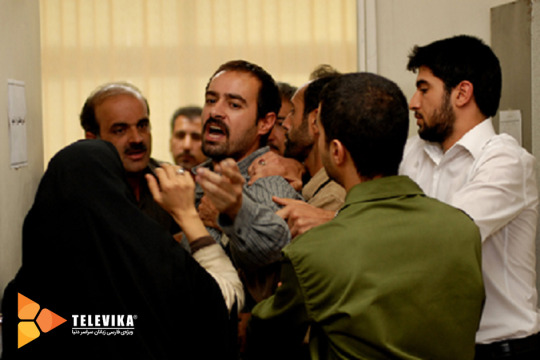
A Separation; A Movie More Than A Film
Even though it has been more than a decade since the premiere of Asghar Farhadi's most significant picture, A Separation, viewers interested in the film might find something new and appeal in viewing the film once more in the present day. When seeing the movie for a second time, one of the essential things to look out for is the discovery of minute and specific details. These details demonstrate the director's talent for turning a mundane occurrence into a dramatic situation that is both captivating and terrifying.
The success of Asghar Farhadi's fifth feature film has elevated him to such a high position that the script may easily serve as a learning unit in colleges throughout the world that teaches screenwriting and directing. In addition to having a remarkable effect on society, the picture's phenomenal success at international film festivals, for which it was nominated for the first Academy Award in the history of Iran's cinema, inspired a large number of other filmmakers to follow in his footsteps.

Because of the success of the movie "A Separation," filmmakers in Iran were inspired to produce films that could never provide the same level of creativity and effect that the story of A Separation had in the cultural and social spheres, but which nonetheless earned them recognition. It would seem that the key to Farhadi's success is a point that is both straightforward and challenging at the same time. This point is what sets him apart from all of his contemporaries and other directors. This uncomplicated argument is nothing more than an accent on the specifics.
Minute Details In “A Separation”
It is here that simple details such as taking the girl to school, leaving garbage at the door (which becomes a significant issue in court when the garbage bag is torn and the entrance stairs of the apartment are dirty), taking the change from the station attendant (which, along with the sequence of Nader's presence at Razie's house and writing a payment check in their name and recalling Nader's usual monologue about not giving money by force to anyone, shows a real manifestation of the contradictions of human behavior in different situations).
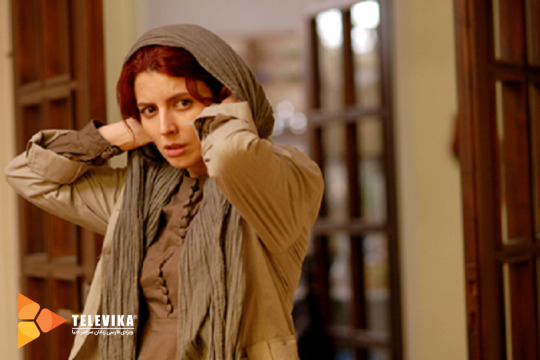
All the details above show us that we have seen a movie with an accurate and skilled filmmaker behind it that has a dramatic logic for all the moments of the story he is telling. Unlike directors who design and execute many scenes and dialogues of secondary characters just to increase the time of the film and reach the 90-minute limit of screening in cinemas; Surprisingly, Asghar Farhadi has not included any dialogue or action outside the structure of the drama or help characterization in the story.
Perhaps a look at the impact of secondary characters such as the neighbors and the teacher who tries the primary concern of the girl (Termeh, played by Sarina Farhadi), which is learning, let us know more about Asghar Farhadi's skill in complicating a simple situation through attention and focus on details.
Two Key Sequences in A Separation
Perhaps, Asghar Farhadi's intelligence can be seen in two sequences; 1) in The opening sequence - where the reason for the separation is migration to a country that offers a brighter future for them - 2) In the second scene of the film, Simin (played by Leila Hatami) amidst the clutter her house and passing through the workers who are busy carrying her piano, she went to different corners of her house to collect her belongings. This is the trembling camera on Farhadi, which, with its dynamic mise-en-scène, fuels the chaos in the atmosphere of the couple.
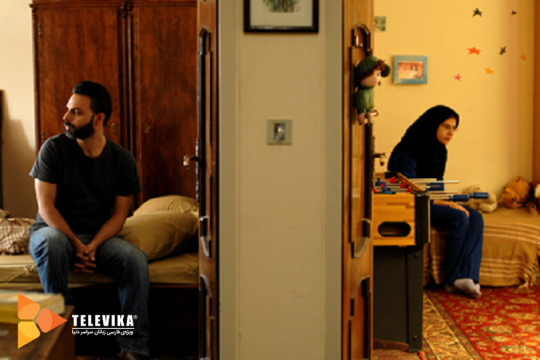
It takes about 7 minutes from the moment Simin enters the house to the moment she leaves, taking the nurse with her. During these 7 minutes, Asghar Farhadi quickly introduces us to the atmosphere of the house, the relationships between the main characters in his story, the grandfather who has Alzheimer's, and the nurse who agrees to work in their house to help the Simin family, making an acquaintance and spends the next few minutes of the film on the strength of the foundations of the drama, which all come to fruition in the second half with Razie's (played by Sareh Bayat) complaint against Nader.
A Separation Is NOT A Classic Drama
The exciting thing is that Farhadi, unlike the everyday classic dramas, which starts with a crisis in the relationship between the couple, and by involving them in a story, in the end, the story brings them to peace; The crisis of the couple in A Separation has continued endlessly, and even after solving their problem with Razieh's family (and despite the closeness of the husband and wife to each other, which leads to Simin's paternal house document being at their disposal), they are still aware of the divorce issue. It is deadlocked and makes the initial crisis of the film seem like an eternal inevitability.

The bitterness of the story takes on wider dimensions when we remember the girl who has always made her parents and those around her idol (We see the girl regularly studying and practicing the right behavior), and occasionally they teach her honesty and abstinence. She invites self-interested behavior by observing the mistakes and lies of his parents during the crisis, and she reaches strange conclusions from the complications of life, which even forces her to lie when faced with the judge's question; where she falsely says when facing the judge's question that she was the one who told her father about the exchange of phone numbers between the teacher and the nurse.
Maybe now, and in the face of the endless crisis that has gripped Nader and Simin's family, we can better understand the endgame that Asghar Farhadi has planned for the final chapter of his film. The end of the game comes from the heart of the drama itself and becomes an undeniable necessity.
All Things Turn Against Razieh
Both gender and social class are important considerations. In one of the scenes, a group of individuals can be seen lounging about the apartment and having a good time while playing table football. Family and friends are welcome to take part in the activity. But not Razieh. She is seen doing something quite pathetic in the kitchen where she is said to be working.
When Termeh's instructor Miss Ghahraii (Played by Merila Zare'i), stops over, she is shown respect due to a highly esteemed visitor. After all, she is instructing their daughter in the subject. However, what about Razieh? In addition, she is an essential family member since she is responsible for the care of Nader's father. On the other hand, nobody respects her. In addition to this, she is additionally constrained by the convictions of her own religious tradition.
The scenario, as shown by Farhadi, is like a pool of gasoline into which any occurrence falls like a lit match. Everyone is aware of their rights and how outraged they are when injustices or slights are committed, and the women bitterly realize that they must simultaneously discover a workable solution and persuade their male counterparts to accept it. However, the children are one item that cannot be negotiable.
Termeh takes the stage toward the conclusion. She observes everything, coerces her father into making a crucial admission, and is then painfully made to act in his place. Her suffering and rage are well concealed. But she is the one who will bear a dreadful, indescribable load—a moral and juridical burden. This is a pernicious kind of maltreatment that has been imposed upon her by the adults' conceit and greed. Farhadi skillfully and subtly turns this unpleasant argument into a modern tragedy.

A Separation Is Worth Watching Again and Again
In spite of Nader's careful care for his father, we still have a tendency to conceive of him as an authoritative patriarch along the lines of the character that Alfred Molina portrayed in the film Not Without My Daughter. However, after the opening scene, which is a magnificent single shot of the pair speaking to a judge who we only hear, Simin vanishes for a period of time.
When we were left alone with Nader, we quickly began to see how wrong our rapid judgment of his character had been. As we see him try to be a parent and provider for his daughter while also tending to the needs of his aging father, we start to empathize with him and may even find ourselves rooting for him. The remainder of the movie is spent with Farhadi using a maddening succession of mishaps to pull both of them closer to the core of the story. At long last, we recognize them for what they are: humans. They are not perfect, but there is hope for them still. Simply said, they have human characteristics.
#televika#farsi#seperation#asghar farhadi#peyman_maadi#leila hatami#تلویکا#جدایی_نادر_از_سیمین#اصغر_فرهادی#فیلم#فیلم_سینمایی#سریال#separation
0 notes
Text
THE INFLUENCE
The delicate empathy of Iranian director Asghar Farhadi inspires Leticia Cáceres’s own exploration of family dilemmas.
— By Neha Kale
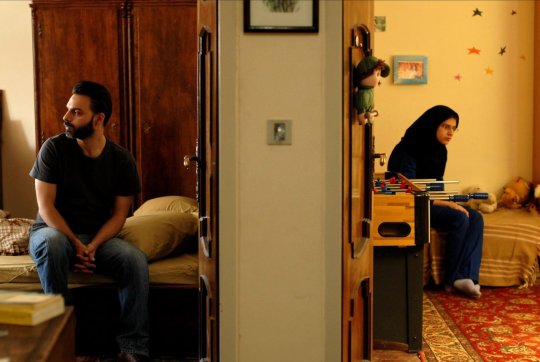
Peyman Moaadi and Sarina Farhadi in Asghar Farhadi’s 2011 film A Separation, and Leticia Cáceres (below). CREDIT: MAXIMUM FILM / ALAMY (ABOVE), BRETT BOARDMAN (BELOW)
Leticia Cáceres is drawn to stories in which ordinary people negotiate extraordinary circumstances. The award-winning director, who immigrated with her family to Brisbane as a 13-year-old, grew up in Córdoba, Argentina, where watching actors on the street sparked an early love of theatre. Cáceres, who moves between stage and screen, has since applied her powers of observation to a series of critically acclaimed productions including 2016’s The Drover’s Wife, 2018’s Going Down and the first two seasons of Stan’s Bump. When we speak, she’s preparing for the upcoming Belvoir adaption of Anne Deveson’s memoir of fighting for her son who’s diagnosed with schizophrenia, Tell Me I’m Here.
She’s long been captivated by the work of renowned Iranian director Asghar Farhadi. For Cáceres, Farhadi’s 2011 film A Separation – which sees a Tehran couple caught between the decision to move overseas for their daughter or stay to look after a sick parent – reflects the kind of deeply human struggle she wrestles with in her own work.
Tell me about A Separation. When did you first come across Farhadi’s work?
I was actually working on a play called The Dark Room. What resonated with me was that it was about people trying to migrate and why they migrate. Farhadi doesn’t make his characters political migrants. They are economic migrants, but there are underlying political questions about the everyday life of these people. What are the repercussions of staying? What are the repercussions of leaving? These are the things that we wrestled with when we left Argentina. We were a middle-class family and we could have stayed. But in terms of what could have opened up for the next generation in a country that has more stability, in a country that doesn’t have the same morality or religiosity imposing itself, means that different questions of class arise. I felt very strongly for these characters who work in the home, the conditions under which that woman has to travel for hours with a child. Those were images that I grew up with. That is the world for most people.
It’s a privilege to choose to move countries but I think those class questions are really underexplored.
There are the reasons why someone would want to stay. Your ties to family, your responsibility – oh my god, I’m getting emotional. There are subtle things that Farhadi peppers in there, like the dishes piling up and you go, this guy is really struggling. I just fell in love with the way he interrogates character in such an unobtrusive way. The camera isn’t there in a flashy manner, it’s just there as a companion to their lives.
To me, A Separation wrestles with difficult moral truths. The film revolves around a middle-class couple. The wife, Simin, wants to leave the country to give her daughter, Termeh, a better life. And her husband, Nader, wants to stay to look after his father who has Alzheimer’s. No one is right or wrong. How does the film’s ethical complexity inform you as a director?
It’s about allowing audiences to bear witness to life in a manner that allows empathy and compassion, and how these complexities intersect with politics. So we can ask broader questions like, why was Razieh on the bus for two hours? Why didn’t she say, I can’t take that job? We know why, but why does she persist? And the presence of that little girl, the way that he reveals information like when they are fighting the judge and the mother says, Look at all the pills my husband is taking, the depression that he’s in because he can’t get work!
The dignity and indignity of her husband, who you feel so much for. There are layers in there to do with Iranian culture that we can’t even get at. But he gives you the opportunity to understand the way we make choices and how we make choices. None are very simple. They are tied to a series of conditions that are sometimes social, sometimes political, sometimes emotional – and all of which are valid. And that is Farhadi’s mastery as a director.
The way we think of free will in the West is very individualistic. The scene where Razieh has to clean Nader’s father achieves something very powerful in terms of showing us how we try to protect our loved ones, what human dignity is.
There’s this beautiful moment when Nader goes in after her, trying to protect his dignity and hers. The way Farhadi as a director also maintains the dignity of the actor by closing the door on the camera so that the cleaning can happen. It is so delicate and so soulful.
In A Separation, the family is a microcosm of social forces. You’re also drawn to family in your own work.
I think part of it is about trying to enter into this family without a sense of judgement or preconceived notions about who they are and how they behave. I’m interested in the way we relate to each other and how power manifests in these relationships and what this speaks about societal infrastructure.
In Tell Me I’m Here, a professional like Anne Deveson, with enormous amounts of intellectual and financial privilege, can still be confronted by the cruelty of a chronic mental illness in a system that is not equipped to protect the most vulnerable.
Family is where the personal becomes the political. We don’t live in a bubble, we live in a society. We abide by cultural rules. All of these things are in play constantly. In A Separation, the middle-class family is quite open, but they also exploit cultural forces – for example, the granting or not granting of divorce. Also, the twist at the end when Nader says to Razieh, We will leave you alone, we will give you the money you want but you have to swear on the Quran that I didn’t hurt you. And he knows that she can’t!
That scene is devastating!
Farhadi sets up these 40 days at the beginning of the film, about when the lease is going to run out, until the end when the child has to decide who to live with. There’s this incredible disintegration of that family over that two hours. Then there’s the way that he is able to show the structural challenges that people negotiate on a daily basis and how those impact the most innocent, like an 11-year-old girl or a five-year-old girl.
In A Separation, although the female characters are confined in some way, they still possess agency. Termeh questions her father even as his choices make her suffer. You’re compelled by women’s stories in your own work.
A Separation is such an interesting story of women negotiating impossible circumstances. A lot of women still carry the domestic load in their own lives. But in A Separation, there’s the simple fact of the father not knowing how to do the laundry. What I find so thrilling is the way these women navigate these restrictions and find their own power. But until we are living in a world where everyone knows how to use the damn washing machine, we will not have reached equality!
All the women have equal screen time, they are treated with full complexity. You see women working, you see them earning money, trying to survive. He doesn’t show women as pious or vulnerable but as active and assertive. They have the agency that all human beings have.
This article was first published in the print edition of The Saturday Paper on August 20, 2022 as "Leticia Cáceres".
0 notes
Photo

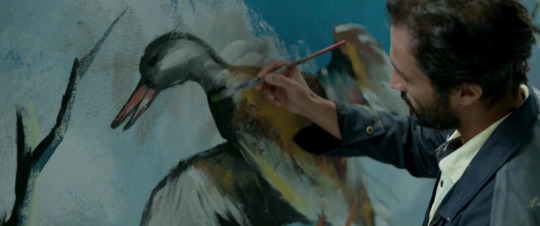
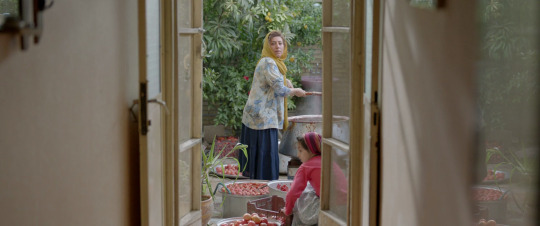
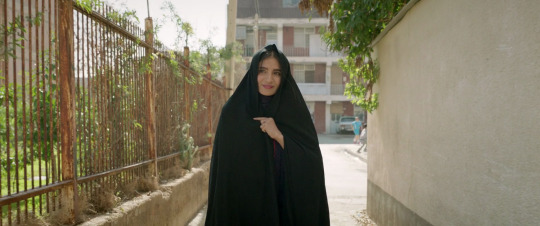
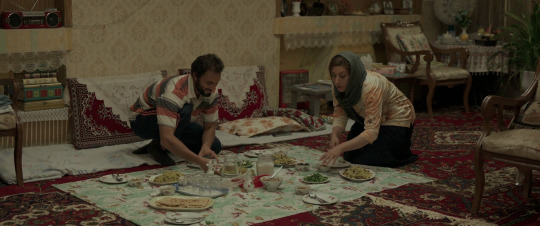
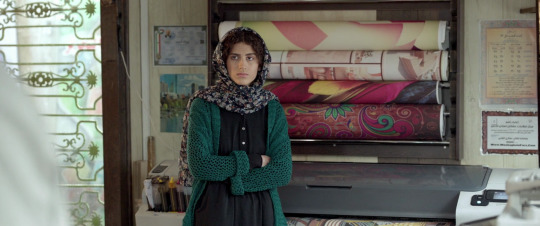
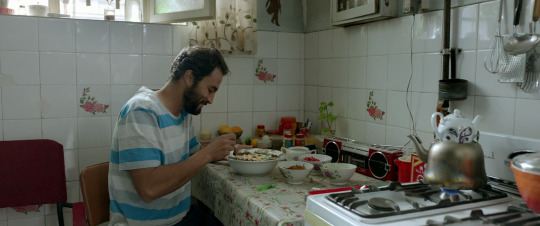
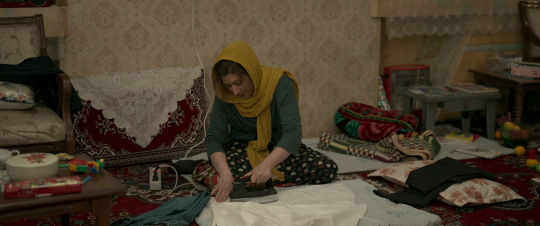
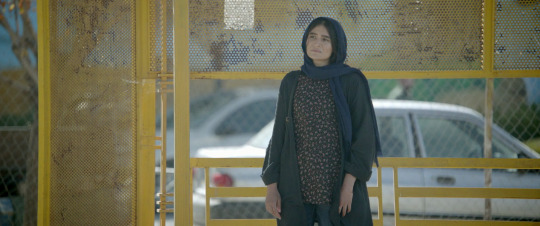
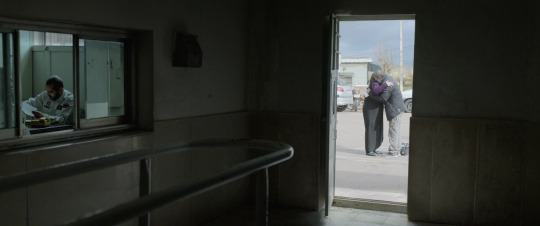
A Hero (Asghar Farhadi, 2021)
#A Hero#Asghar Farhadi#Farhadi#seis#films watched in 2022#2021#Amir Jadidi#Abolfazl Ebrahimi#Mohsen Tanabandeh#Fereshteh Sadrorafaei#Sarina Farhadi#drama#thriller#robbery#long shot#prison#jail#interiors#money#iran#painting#art#paintings
468 notes
·
View notes
Photo
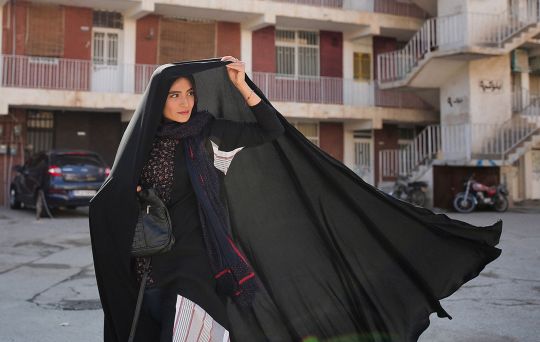
A Hero (Ghahreman), Asghar Farhadi (2021)
#Asghar Farhadi#Amir Jadidi#Mohsen Tanabandeh#Fereshteh Sadre Orafaiy#Sarina Farhadi#Sahar Goldust#Ali Ghazi#Arash Ramezani#Hayedeh Safiyari#2021
12 notes
·
View notes
Text
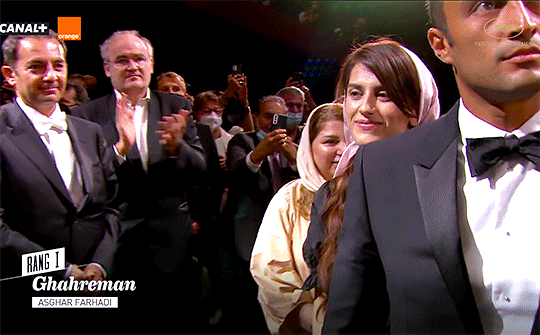
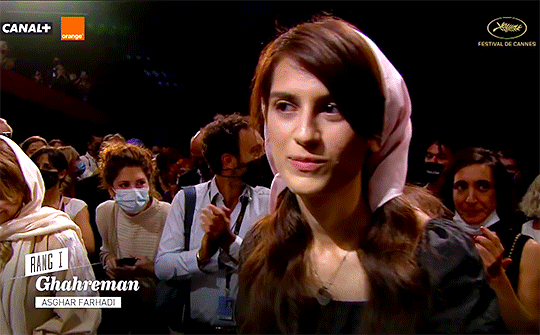
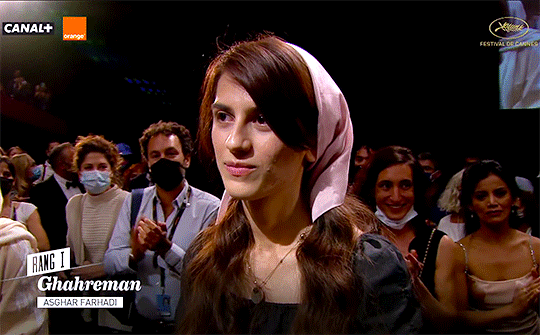
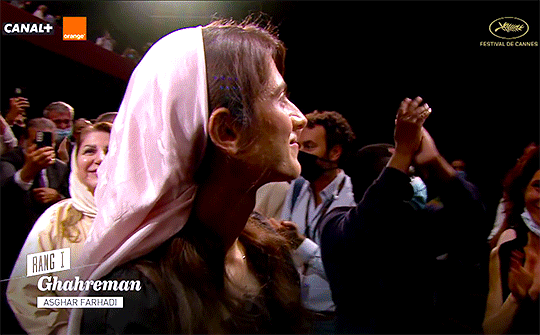
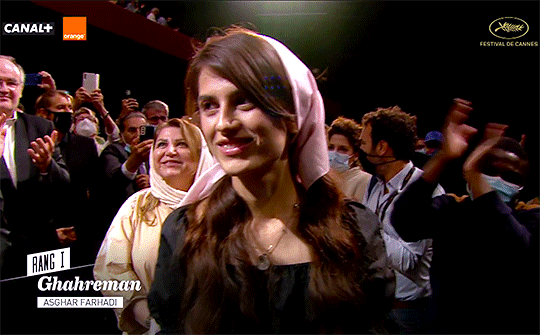
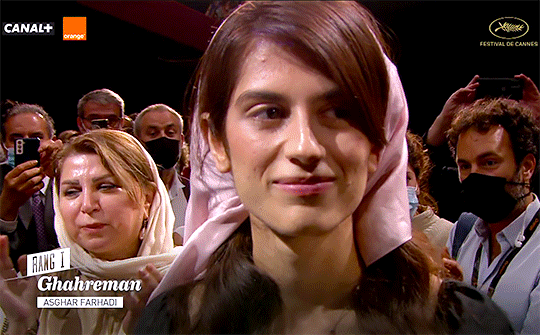
CANNES (2021) | GHAHREMAN (A Hero)
dir. Asghar Farhadi
14 notes
·
View notes
Photo
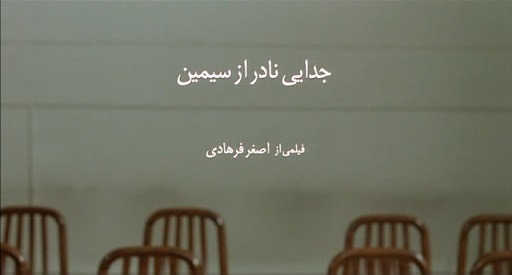
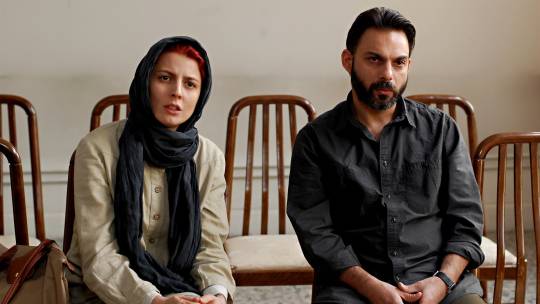

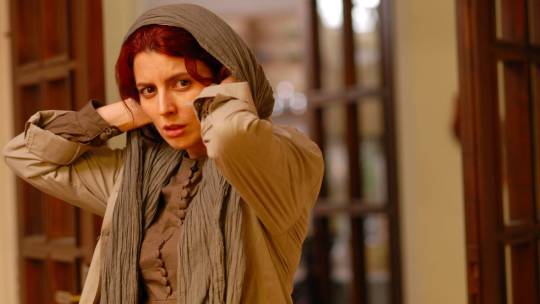
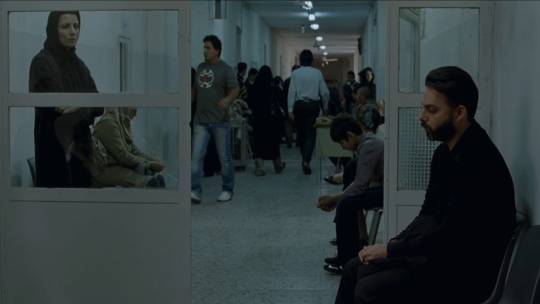
TPS’S 25 ADDITIONAL FAVORITE MOVIES OF ALL TIME (2020 Edition)
A Separation
Director: Asif Kapadia
Cast: Leila Hatami, Peyman Moaadi, Sarina Farhadi, Sareh Bayat, Shahab Hosseini, Kimia Hosseini, Merila Zarei, Babak Karimi, Shirin Yazdanbakhsh, Ali-Asghar Shahbazi
Best Moment: Hodjat and Razieh’s ethical debate
#favorite movies#25 favorite movies#20 favorite movies#a separation#asif kapadia#leila hatami#peyman moaadi#sarina farhadi#simin#nader
3 notes
·
View notes
Photo

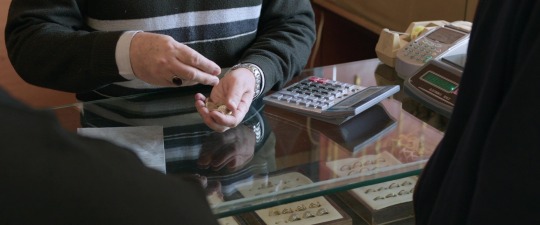
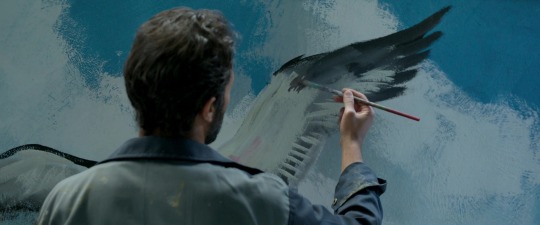
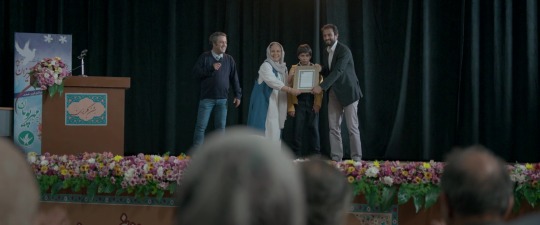

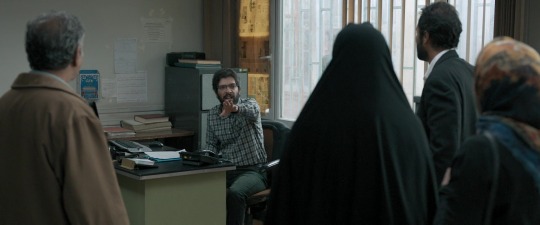




قهرمان [A Hero] (Asghar Farhadi, 2021)
#قهرمان#A Hero#Asghar Farhadi#Iran#artist#prison#jail#Cinema of Persia#Cinema of Iran#Iranian filmakers#Tehran#Mohsen Tanabandeh#Amir Jadidi#Sahar Goldoost#scandal#Fereshteh Sadr Orafaie#Sarina Farhadi#pride#charity#debt#Iranian film directors#Iranian New Wave#Middle East#money#capital punishment#selfless act#celebrity#Ghahreman#art#Shiraz
5 notes
·
View notes
Photo
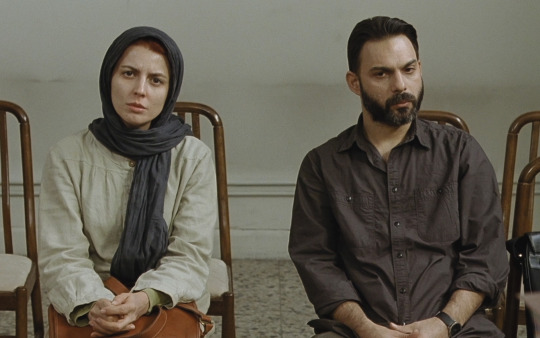
#550 #Jodaeiye Nader az Simin (A Separation)
#Jodaeiye Nader az Simin#A Separation#Oscar#Asghar Farhadi#Payman Maadi#Leila Hatami#Sareh Bayat#Shahab Hosseini#Sarina Farhadi#Ali-Asghar Shahbazi
23 notes
·
View notes
Text
#a separation#film#review#asghar farhadi#leila hatami#peyman moaadi#shahab hosseini#sareh bayat#sarina farhadi
3 notes
·
View notes
Text
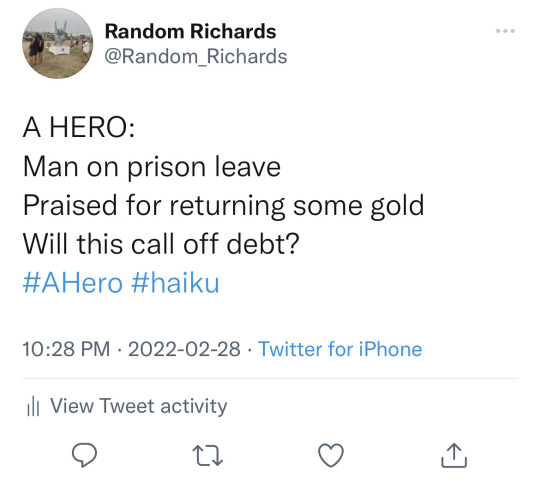
A Hero
#a hero#random richards#poem#haiku#poetry#haiku poem#poets on tumblr#daily haiku#haiku poetry#haiku form#poetic#haiku a day#asghar farhadi#iranian movies#amir jadidi#Fereshteh Sadre Orafaiy#sarina farhadi#iran#iranian filmmaker
0 notes
Text
MOVIES: A Separation
Make it your New Year’s resolution to go see this sad, funny, suspenseful Iranian drama.
BY DANA STEVENS
DEC 30, 2011 ⦿ 2:44 PM
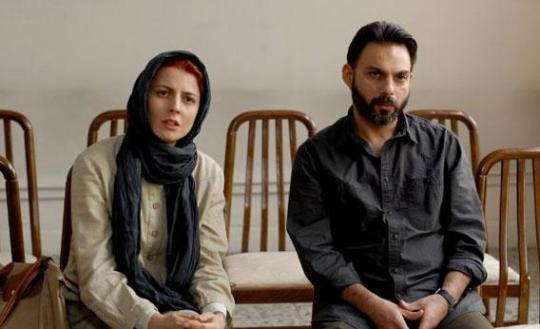
Leila Hatami and Peyman Maadi in A Separation
© Sony Pictures Classics.
It’s fitting that its release comes in the midst of the end-of-year frenzy for rating and ranking and listing, because the Iranian director Asghar Farhadi’s A Separation serves as a quiet reminder of how good it’s possible for movies to be. You don’t always have to sacrifice complexity for suspense, or formal sophistication for visceral power. It’s possible, if rare, to come across a movie that has it all.
A Separation is a domestic drama in the strict sense: It takes place mainly inside the apartment of one family, a middle-class couple named Simin (Leila Hatami) and Nader (Peyman Maadi) who have a 10-year-old daughter named Termeh (Sarina Farhadi). Simin is in the process of beginning divorce proceedings against her husband: She’s obtained an exit visa and wants to leave Iran with their daughter and settle in the West. But Nader refuses to consider leaving behind his father, an Alzheimer’s sufferer who’s come to live with the family and requires round-the-clock care. “He doesn’t even know you’re his son!” protests Simin. “I know he is my father,” Nader responds.
At their divorce hearing, Simin and Nader are sent home by a patronizing off-screen judge: “My finding is that your problem is a small problem,” we hear him tell a furious Simin, refusing to grant the divorce until the couple can come to a mutual agreement to separate. But this family’s problems are about to get a lot bigger. When Simin moves out to live with her parents, Nader hires a caretaker, Razieh (Sareh Bayat) to look after his father during the day. This devout young mother is soon overwhelmed by the task of attending to a man who can no longer speak, dress, or wash himself. One afternoon, for reasons that aren’t clear at first, she leaves the old man alone while she runs an errand. The consequences of that act—and of Nader’s outburst when he comes home to find his father unattended—will eventually spiral into personal and legal disaster for both families, Nader’s and Razieh’s.
As plot summaries go, that’s a sketchy one, but I’ll leave it there, since one of A Separation’s great strengths is the way it gradually reveals the complicated half-truths and strategic evasions in each party’s version of the story. In a way, this is also a legal procedural, but one in which the truth becomes less and less clear-cut as the film goes on. As the battle between the two families escalates—with Simin taking the side of her estranged husband, and Razieh’s hotheaded husband Hodjat (Shahab Hosseini) forcefully intervening on behalf of his terrified wife—we get a sense of the complex web of social forces determining these characters’ choices. The better-off couple is secular and cosmopolitan, dismissive of the poorer family’s traditional Islamic values. But whatever their class or education level, the women—even the fiercely independent, plain-spoken Simin—are subject to the ever-present constraints of institutionalized sexism and social shame. When the judge who’s just forbidden Simin to divorce without her husband’s permission questions why an Iranian mother might aspire to bring up her daughter elsewhere, Simin’s sidelong glare says it all.
A Separation isn’t worth watching only as a precise sociological analysis or a political critique of contemporary Iran—those qualities would be cold comfort indeed if they didn’t exist in the context of a sad, funny, suspenseful story about love, grief, and the search for justice. The ensemble cast—especially Maadi as the harried, short-tempered, ethically conflicted Nader—is extraordinary. As has become a tradition in Iranian cinema, the child characters are not just props but essential participants in the story, and both young actresses—Sarina Farhadi, the director’s daughter, as the wise-beyond-her-years Termeh and Kimia Hosseini as the caretaker’s observant, saucer-eyed little girl—deliver impeccable naturalistic performances.
Despite some conflict between Farhadi and government censors while the film was being made, A Separation has now been released to acclaim within Iran and named the country’s official entry for the foreign-language Oscar. This is a dense, complex film that demands close attention from its audience (and richly rewards a second viewing). With one of Iran’s major living filmmakers, Jafar Panahi, currently in prison for his support of the opposition movement, and another, Abbas Kiarostami, now working abroad (this year’s Certified Copy is finally getting him the wider recognition he’s long deserved here), it’s a joy to see that there are still films of this caliber being made in that curiously cinematic country. It’s my New Year’s wish that even viewers who’ve never bought a ticket to a subtitled film in Farsi will give A Separation a chance.
#Iran#Cinema#Asghar Farhadi#A Separation#Peyman Maadi#Sarina Farhadi#Shahab Hosseini#Jafar Panahi#Abbas Kiarostami#Certified Copy#Salon Magazine
0 notes
